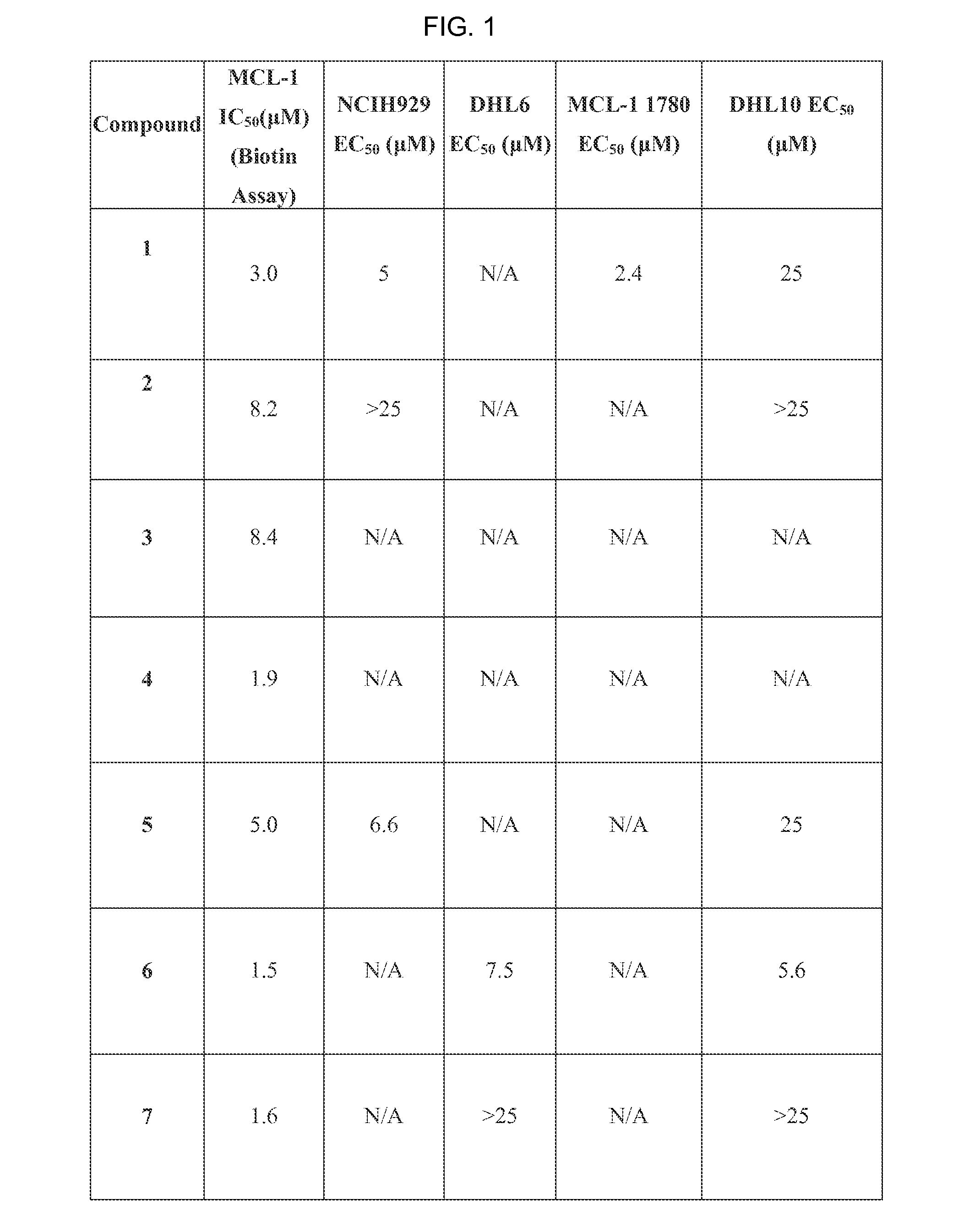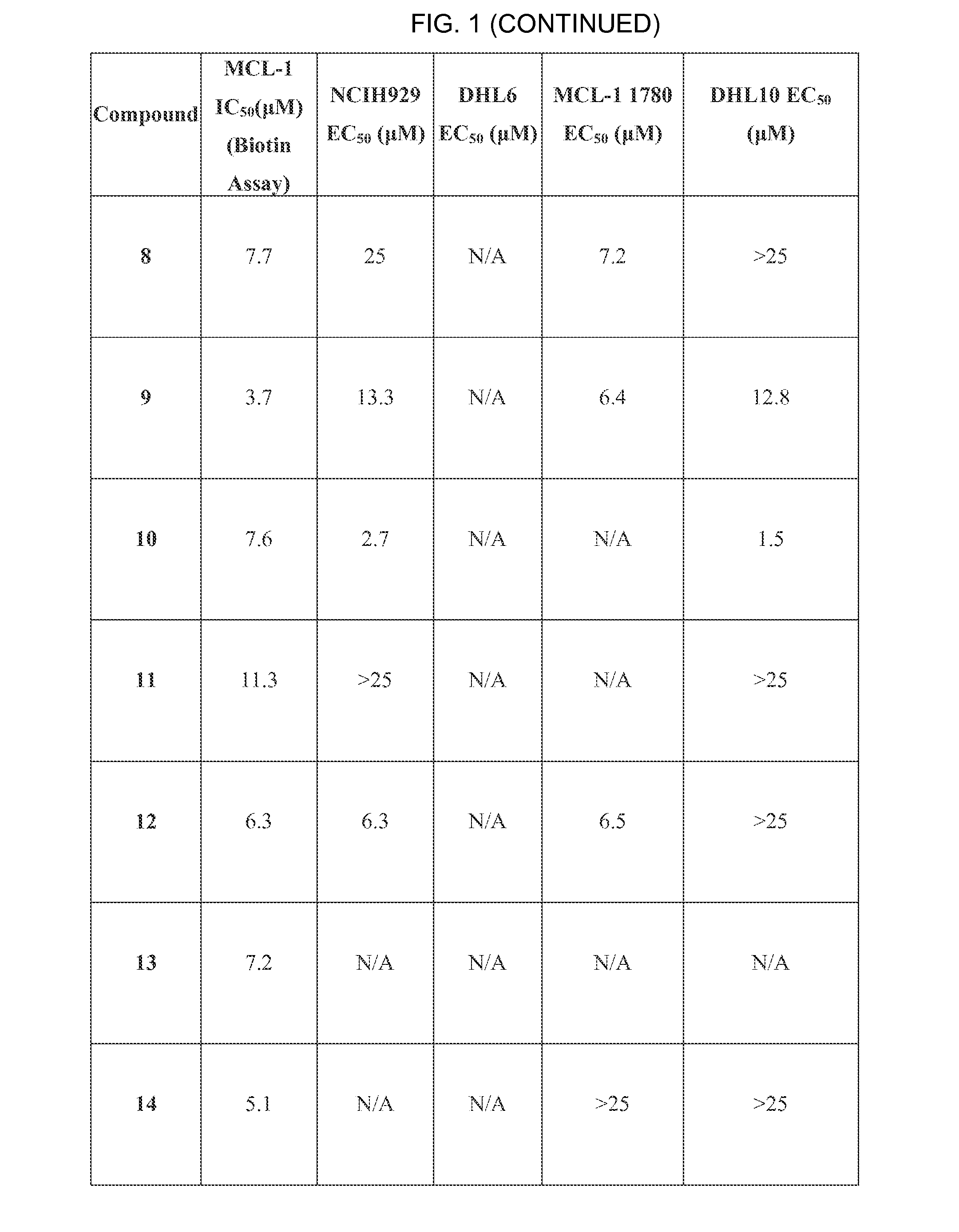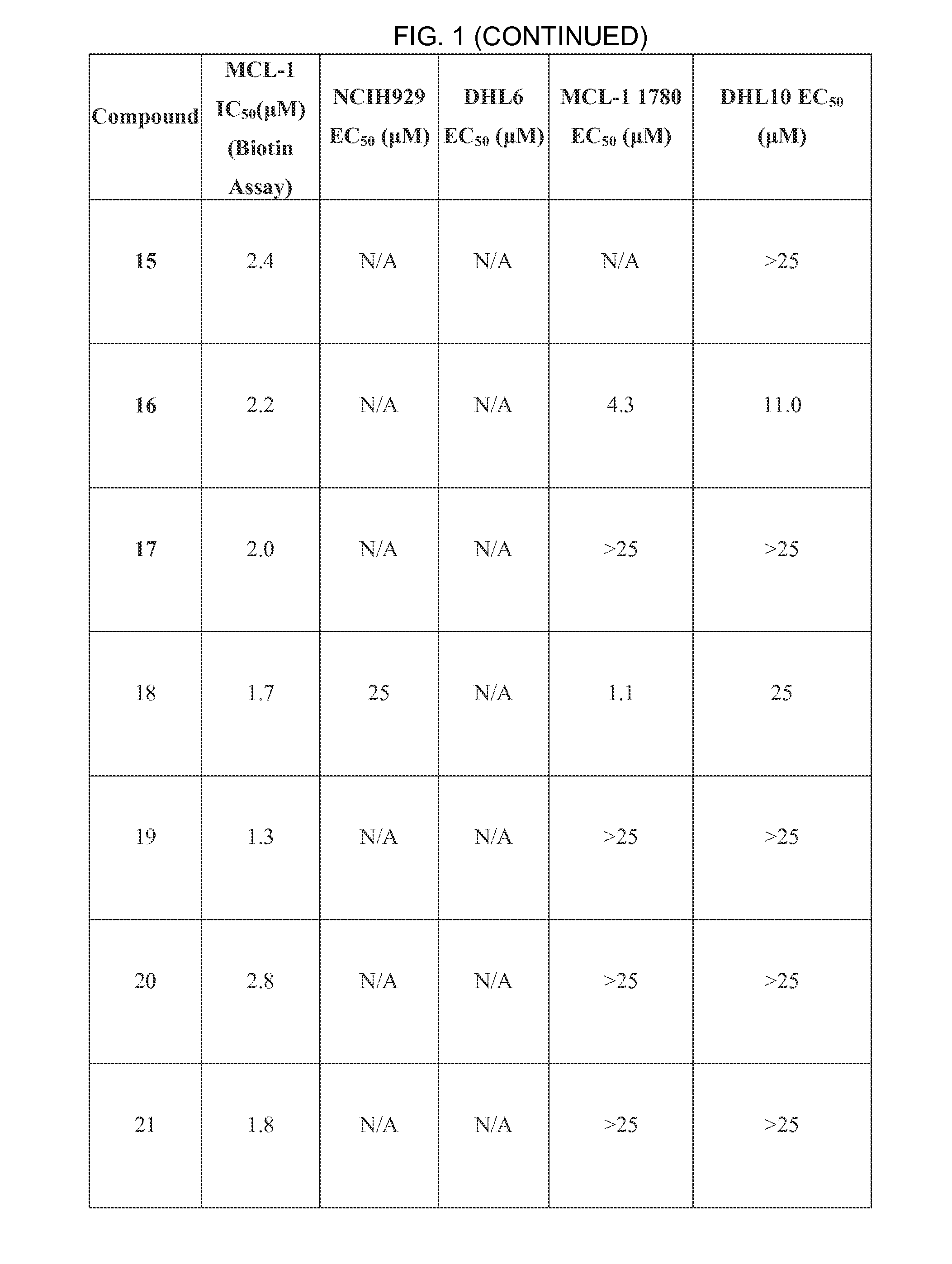Compositions and methods useful for treating diseases
a technology for autoimmune diseases and compositions, applied in the field of compositions and methods for treating cancer and autoimmune diseases, can solve the problems of blocking the sensitivity of tumor cells to cytostatic or apoptosis inducing drugs, poor survival prognosis and poor survival rate of patients with autoimmune diseases
- Summary
- Abstract
- Description
- Claims
- Application Information
AI Technical Summary
Benefits of technology
Problems solved by technology
Method used
Image
Examples
example 1
Inhibition of Mcl-1 by Compounds of Formula I or Formula II
[0436]The expression level of Mcl-1 correlates directly to chemo-sensitivity and survival of certain non-Hodgkin's lymphomas (Petlickovsk, et al. (2005) Blood 105(12): 4820-7) as well as prostate cancer (Royuela, et al. (2001) Eur. Cytokine Netw. 12(4): 654-63), liver cancer (Fleischer, et al. (2006) Int. J. Oncol. 28(1): 25-32) and other cancers. Mcl-1 is therefore an ideal target for treating these cancers. This example shows that the BH3 mimic compounds of Formula I or Formula II inhibit the binding of the BH3 domain of the Bcl-2 family protein Bim to Mcl-1. Accordingly, this example indicates that compounds of Formula I or Formula II are effective in treating certain hematological malignancies that are affected principally by the Bcl-2 family protein Mcl-1.
Materials and Methods
[0437]An ELISA-like streptavidin plate assay was used to demonstrate the activity of the BH3 mimic compounds of Formula I or Formula II to inhibit...
example 2
Activity of Compounds of Formula I or Formula II in Killing Human Tumor Cell Lines
[0442]This example demonstrates the activity of the compounds of Formula I and Formula II and derivatives, in killing certain human tumor-derived cell lines grown in culture. Leukemia and myeloid cells used to assess cell tumor killing activity of the compounds are described. Compounds active in these cell lines have good potential as therapies to treat leukemia and myeloid cancers.
Materials and Methods
[0443]Cell Culture
[0444]The lymphoid derived cell lines DHL-6, DHL-10 were obtained from Anthony Letai of the Dana Farber Cancer Research Institute, Boston, Mass. The myeloid derived cell line NCI-H929 was obtained from the NIH / NCI cell repository. The mouse leukemia-derived cell line MCL-1-1780 (Ryan et al., Proc. Nat. Acad. Sci. USA, 107, 12895-12900) was obtained from Anthony Letai of the Dana Farber Cancer Research Institute, Boston, Mass. Cells were grown in RPMI 1640 medium (GIBCO-BRL) with 2 mM L-...
example 3
Activity of Mcl-1 Inhibitors in Inducing Cytochrome c Release in an In Situ Mitochondrial Assay
[0450]The on-target activity of compound II-19 was validated. Changes in mitochondrial integrity were observed utilizing anti-cytochrome c conjugated to Alexa488 (BD). When the mitochondria are intact, they retain cytochrome c and have bright, punctate staining with the antibody whereas cells with compromised mitochondrial integrity will lose cytochrome c and will not stain with the antibody. This can be observed by microscopy as well as measured by a shift in fluorescence on the FL1 channel of a flow cytometer.
[0451]The selective response of mitochondria in semi-permeabilized cell lines to the compounds was observed. The assay was adapted from (Campos et al. (2006) Cytometry Part A. 69(A):515-523).
Materials and Methods
[0452]Suspension cell lines SUDHL10 and SUDHL6 were grown in RPMI, washed once in 1×PBS and re-suspended at a concentration of 2e6 / ml in assay buffer with 0.0025% Digitonin....
PUM
| Property | Measurement | Unit |
|---|---|---|
| weight percent | aaaaa | aaaaa |
| particle size | aaaaa | aaaaa |
| time | aaaaa | aaaaa |
Abstract
Description
Claims
Application Information
 Login to View More
Login to View More - R&D Engineer
- R&D Manager
- IP Professional
- Industry Leading Data Capabilities
- Powerful AI technology
- Patent DNA Extraction
Browse by: Latest US Patents, China's latest patents, Technical Efficacy Thesaurus, Application Domain, Technology Topic, Popular Technical Reports.
© 2024 PatSnap. All rights reserved.Legal|Privacy policy|Modern Slavery Act Transparency Statement|Sitemap|About US| Contact US: help@patsnap.com










